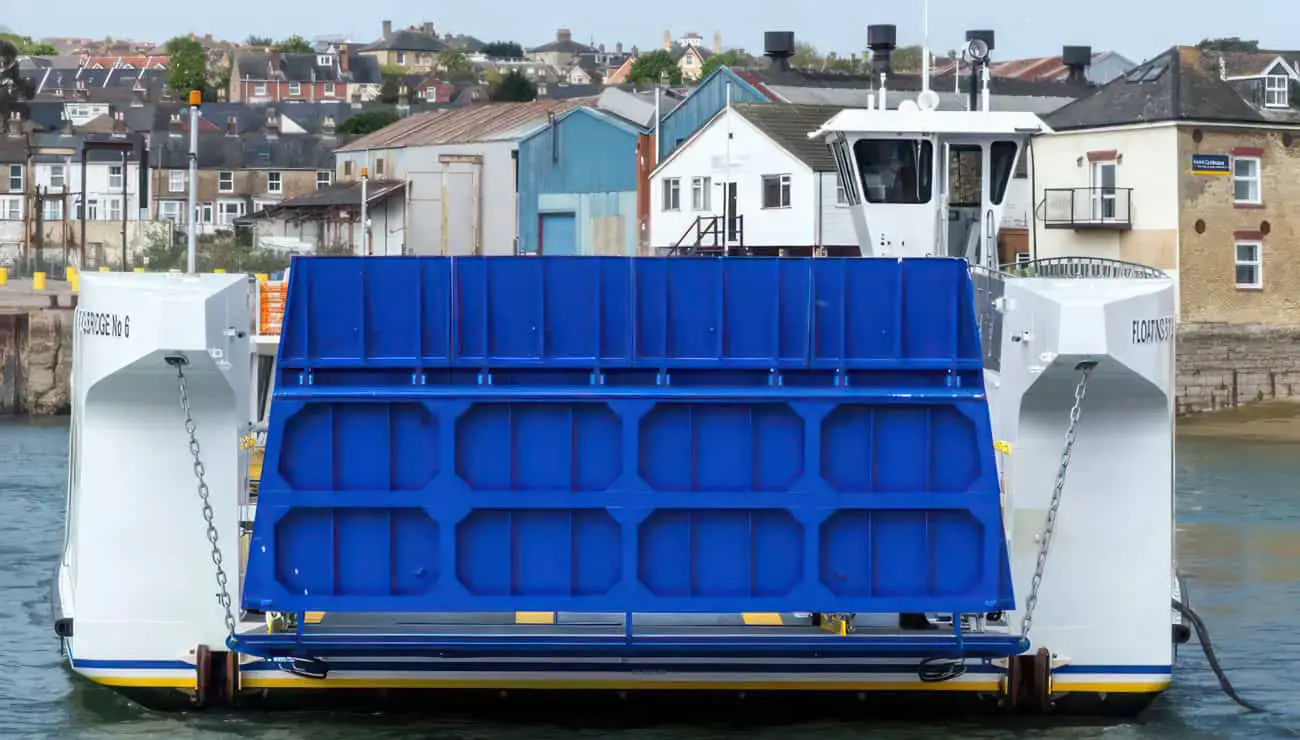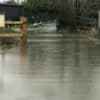Bringing the Floating Bridge 5 (FB5) back would not solve the current issues seen on the crossing over the River Medina, experts have said.
The Isle of Wight council has reviewed the Cowes to East Cowes crossing which has been plagued with issues since the new Floating Bridge 6 (FB6) was brought into service in 2017.
Computer modelling
Computer modelling has been used by consultants 3S to create the environment of the River Medina and predict the outcome of design modifications, without the time and expenses of putting the fixes into place.
As reported last week, the review has ultimately found the FB6 cannot operate without the use of a push boat in strong tides — but neither could the former FB5.
Failing to meet the targets
Speaking at a meeting of the council’s corporate scrutiny committee yesterday (Tuesday), 3S said FB6 was working, but it was failing to meet the targets set out in the business case like the average number of crossings required.
The average time it took FB6 to cross the river was 3 minutes and 30 seconds, a “snail’s pace” compared to FB5’s two-minute journeys, 3S said.
Chain depth issues
However, the answer is not to bring back FB5 as is commonly said, 3S revealed, as it would not comply with the chain depth required by the Cowes Harbour Master.
The chain depth requirement was introduced after FB5 was taken out of service.
They said any replacement vessel would have to be radically redesigned, with a new hull and superstructure, or a push boat may be necessary even into the future.
Bridge or tunnel?
Councillor Clare Mosdell questioned whether other options, like a permanent road bridge, would be a better river crossing.
3S said work had been done in the past to see if there was a viable alternative including a tunnel, but it would have to start in Wootton and finish the other side of West Cowes.
They also said a bridge had been considered, but it would be a serious impediment to tall river traffic.
A floating bridge crossing the most logical solution
The consultants said a floating bridge crossing was the most logical solution, however there was no fix for FB6 that would be worth spending money on.
3S also highlighted issues in the original contract specifications for FB6 which stipulated it should be made of steel and how long it should be, with the contractors facing financial penalties if it was not the specified length.
‘Get on with’ procuring a new FB
The scrutiny committee agreed the only feasible option was to now get a new floating bridge and to ‘get on with’ the process of procuring one.
Alternatives and next steps are being considered next month by the scrutiny committee and cabinet.
You can see the presentation document used by the consultants below, or watch the presentation and Q&A by members of the Scrutiny Committee via YouTube.
This article is from the BBC’s LDRS (Local Democracy Reporter Service) scheme, which News OnTheWight is taking part in. Some alterations and additions may have been made by OnTheWight. Ed





